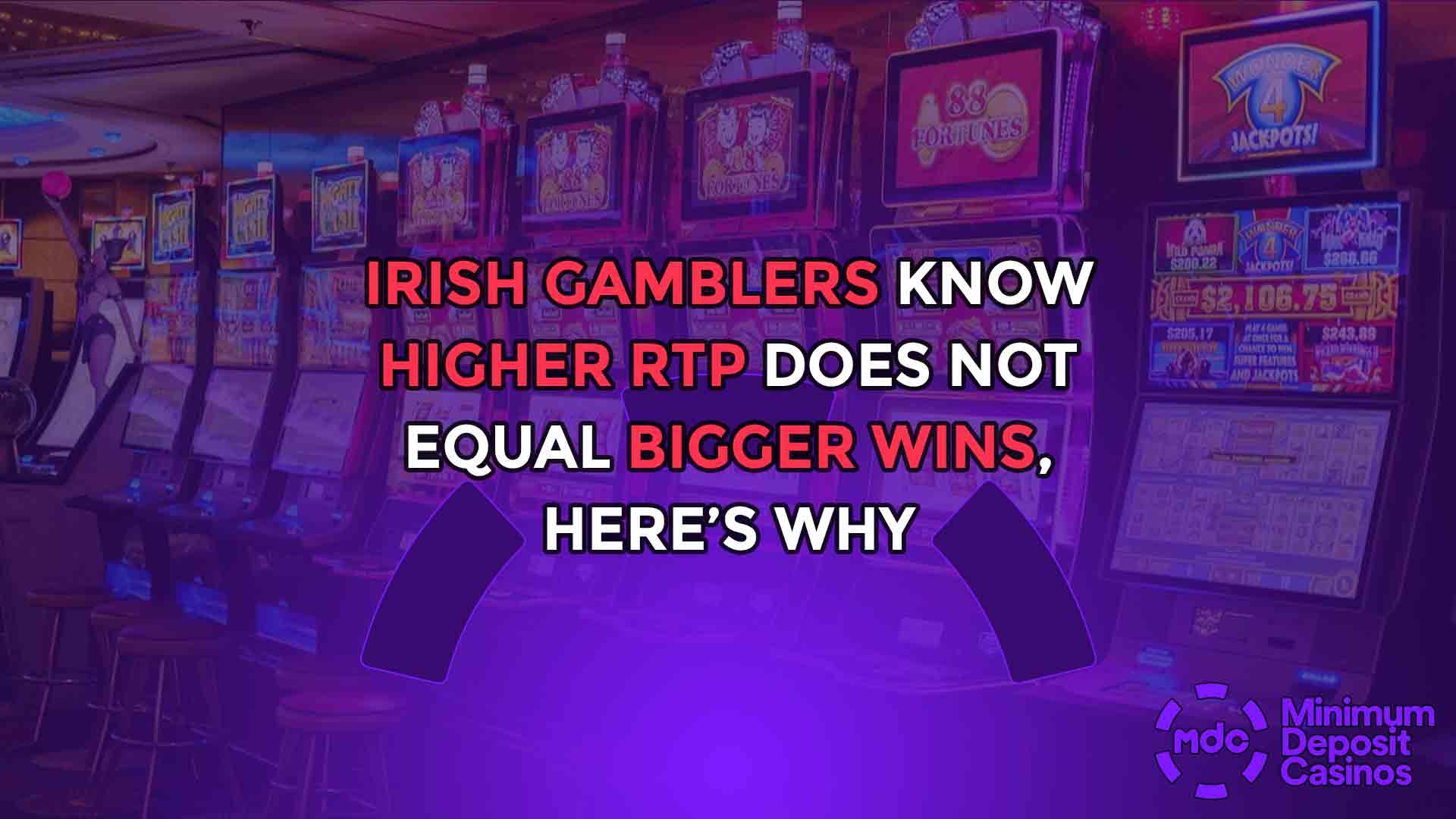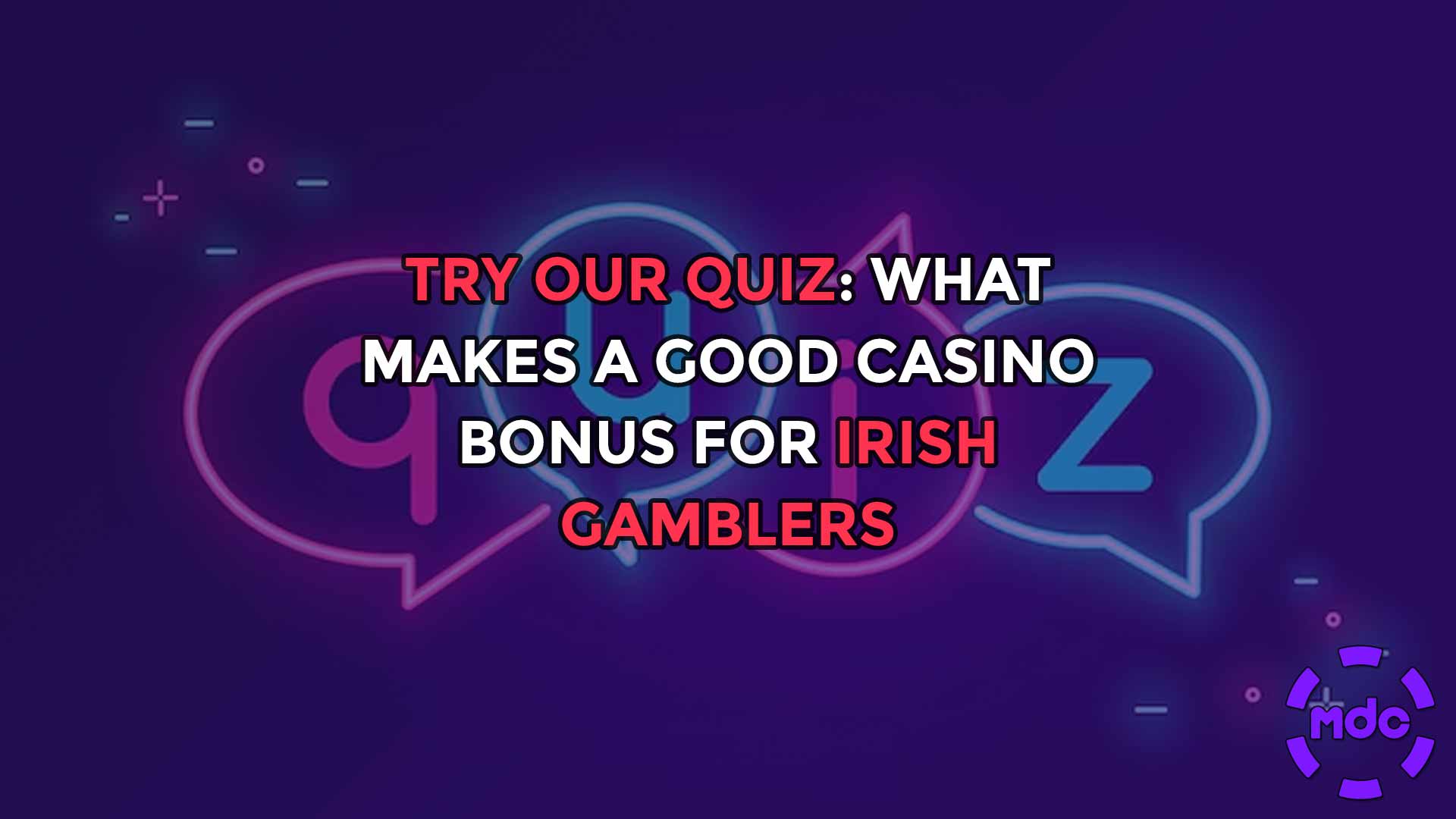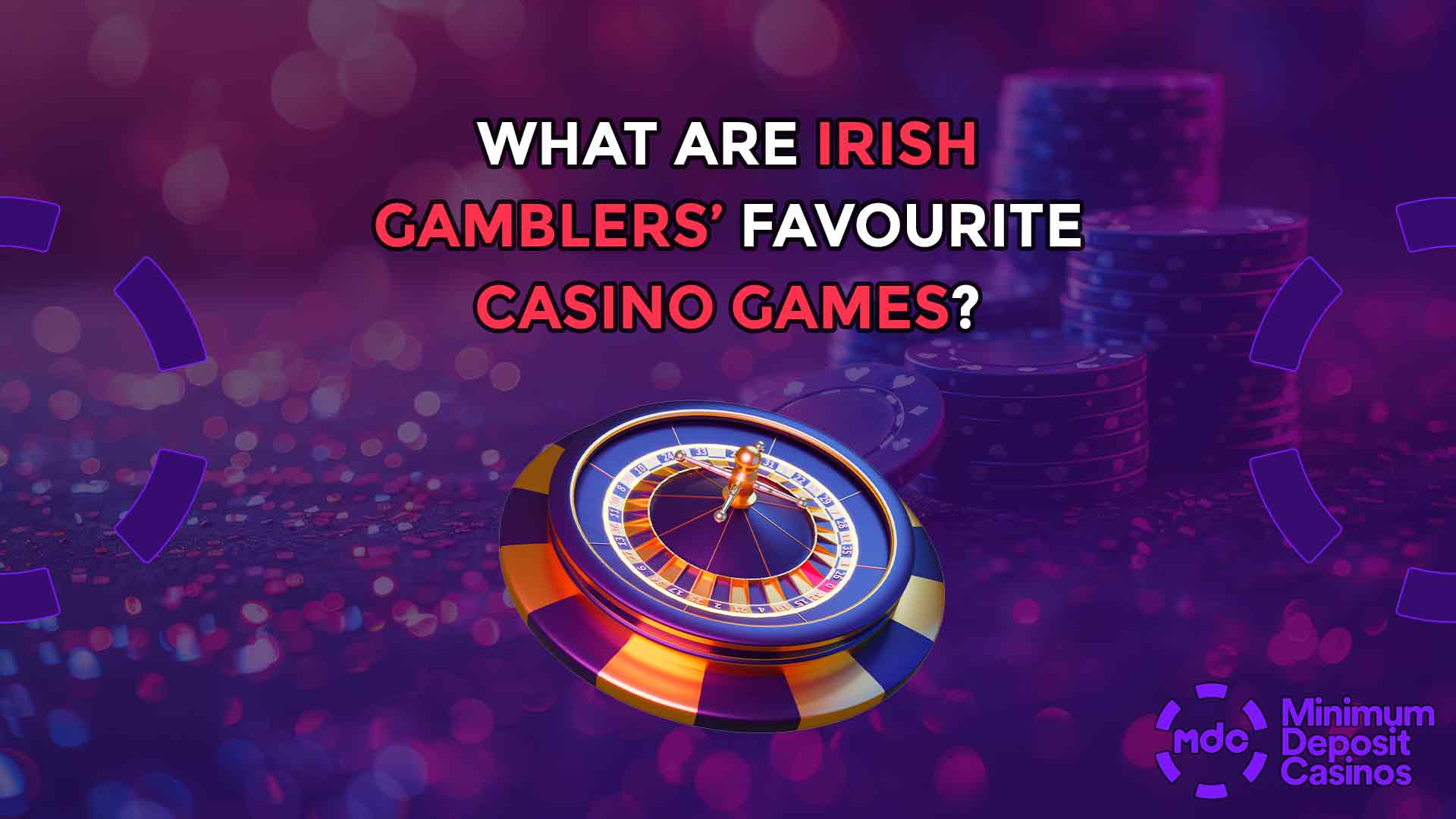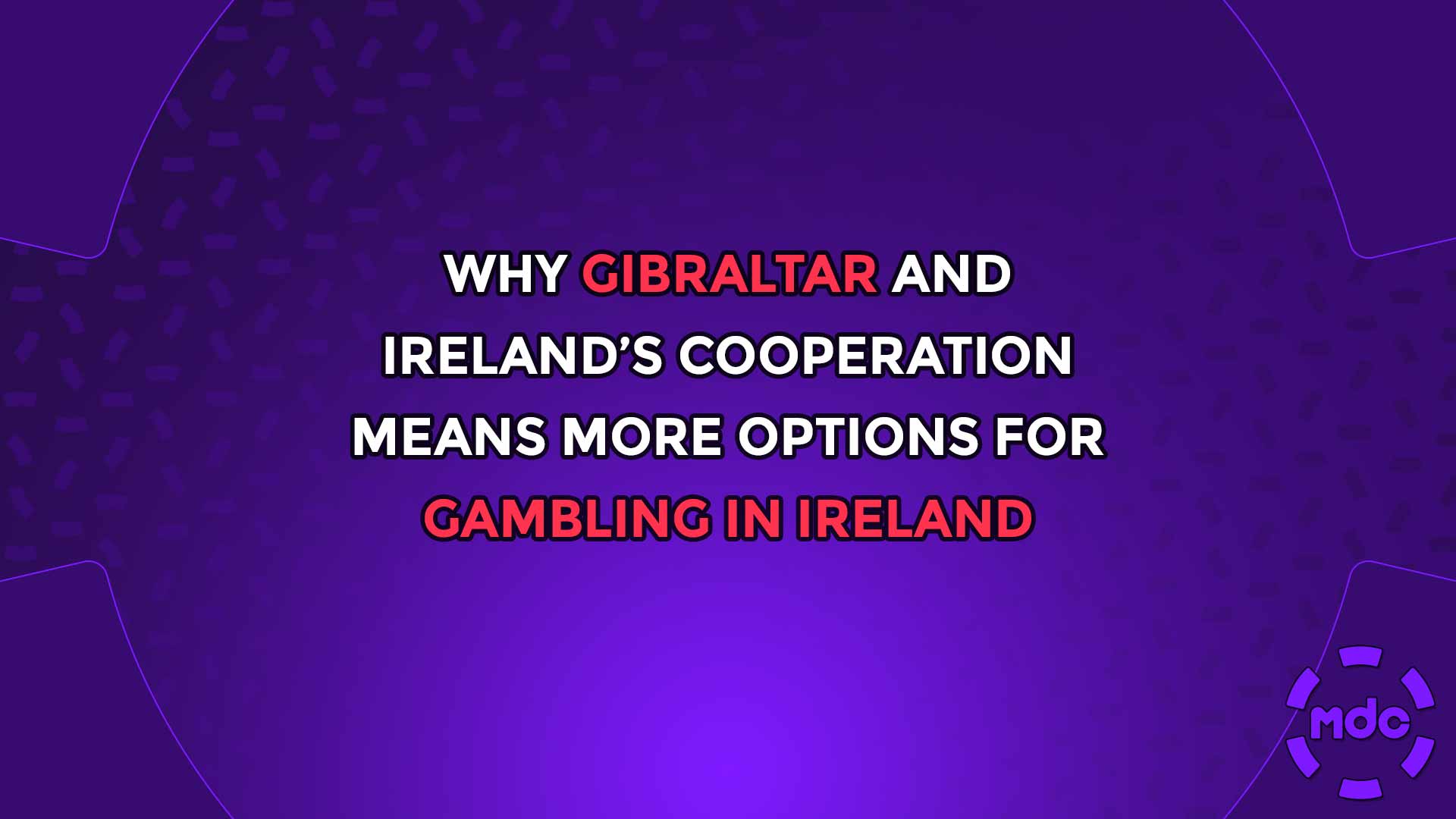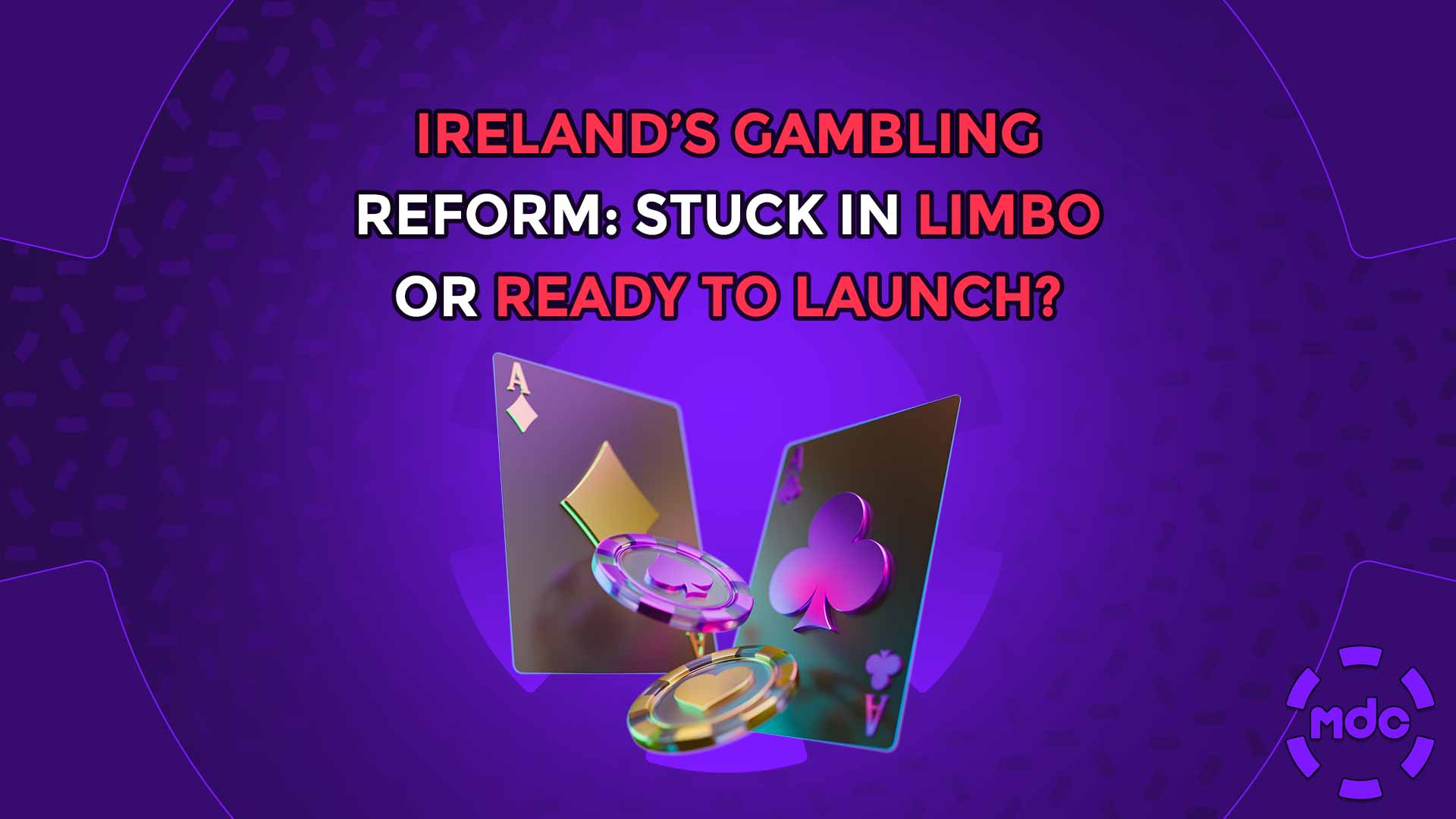Irish gamblers know Higher RTP does not equal bigger wins, here’s why
In Irish casinos, you’ll often hear the term RTP being tossed around like gospel. Return to Player. Sounds reassuring. Maybe even a bit scientific, right? But it’s also one of the most misunderstood numbers in the game.
The truth is, high RTP doesn’t mean you’ll win more or win often. It just means the math behind the slot has been designed to return a certain percentage of the total money bet, but only over a massive volume of spins. We’re talking millions. Not the thirty you did before dinner.
So where does that leave you? Right in the messy middle of what really shapes your session: volatility. That’s the detail most casual players skip. Yet it’s the one that decides whether your €50 vanishes in five minutes or stretches long enough to keep you in the game.
Irish players who’ve been around the block already know that focusing on RTP alone is the fastest way to get blindsided. To avoid this, the smart move is to look for the right blend; something that fits your appetite for risk, matches your bankroll, and feels fun to play. Confused? Let’s go into more details below.
RTP explained: What it is—and what it isn’t
Put simply, Return to Player (or RTP for short) is a theoretical percentage. It’s worked out through millions of simulated spins and then tested again by independent labs. If a slot has a 97% RTP, that means it’s expected to return €97 out of every €100 wagered, but only across massive sample sizes.
To put this into perspective, this is worked out using millions (sometimes billions) of spins during testing. Developers run these simulations before releasing the game, and the results are audited by third-party labs before the slot goes live in Irish online casinos.
So no, a 97% RTP does not mean you’re owed €97 back. The game could chew through your bankroll in ten minutes. Or it might double it. Both outcomes fall within the expected range.
Also, worth noting is the house edge. If the RTP is 97%, the edge for the casino is 4%. That’s their built-in margin. It’s how the business works. Even at reputable Irish online casinos, this margin is always there, no matter how generous the RTP seems.
Another key piece in this puzzle is the RNG or Random Number Generator. This is what actually controls each spin. Every spin is an isolated event, untouched by the outcome of the last. You’re not getting “closer” to a win the longer you play. That’s not how it works.
So, while RTP can help you make informed choices over the long haul, it won’t help you win a session. It’s simply a helpful guide and not a promise.
Volatility: The overlooked factor that changes everything
Volatility doesn’t get the same attention as RTP and that’s a major problem. Because this is the detail that actually shapes your gameplay.
Low volatility slots are what some players call slow and steady. Frequent wins, but usually small. They keep you spinning, but don’t expect life-changing payouts. These games are ideal if you want to keep your session alive without big swings. Think of it as a smoother ride.
High volatility is a different beast. Long stretches without anything substantial. Then, suddenly, a hit that makes it all feel worth it. Or not. That’s the risk. These are the slots games for players who can handle the dry spells and bankroll them.
Irish favourites like Rainbow Riches sit closer to the middle. It offers steady wins, enough to keep casual players engaged, but with moments of excitement sprinkled in. Then there’s Dead or Alive 2, a slot built for high-volatility chasers. It’s ruthless. Spinning it feels like waiting for a storm that might never come until it does.
What volatility does is shape the emotional tempo of a game. High volatility frustrates and excites in equal measure. Low volatility comforts and bores. That’s the balance. And the best Irish players know what side they prefer before they start.
Why RTP alone doesn’t give you the full picture
Let’s take two slots, both with 96% RTP. Game A might pay out €5 every 10 spins. Game B could go quiet for 199 spins, then drop €200. Same theoretical return but totally different experience.
This is why focusing on RTP without factoring in volatility is like choosing a car based only on fuel economy. It tells you something, but not the whole story. Volatility is the road, bumpy, smooth, winding, straight. It defines how your drive feels.
Irish players often jump into high RTP games thinking they’ve cracked the code. But when the wins don’t come, frustration sets in. What they miss is that many high-RTP slots are also highly volatile. And with high volatility comes long dry patches. That’s not a fault. It’s just the design.
That said, chasing low-volatility games just to keep your balance alive isn’t always smart either. You could end up stuck in a cycle of small wins that never add up. It’s like treading water. You don’t lose much, but you’re not really going anywhere either.
Again, the right strategy is to first understand what you’re walking into and choose games that match your risk profile. That’s what separates seasoned players from the rest.
The sweet spot: Matching RTP and volatility to your goals
Most slot players don’t actually want the highest RTP or the wildest volatility. What they really want is something that fits. A game that makes sense for their bankroll, pace, and mood. There’s simply no single “best” combination. It depends on what you’re after.
If you’re playing with modest stakes or just prefer a slower burn, medium volatility with a decent RTP is a solid pick. It stretches your bankroll without getting boring. Wins come often enough to keep you in it, and there’s still a chance for a bigger prize. Something like Starmania or 1429 Uncharted Seas. Both have high RTP, and they won’t tear through your balance too quickly.
If you’re the type who’s chasing a high, where the session is all-or-nothing, then you’ll be looking for high volatility paired with a solid RTP. Dead or Alive 2 fits that mould. It’s brutal at times, but when it hits, it hits. That style isn’t for everyone, but for high-risk players, it’s where the adrenaline is.
And let’s be honest, sometimes it’s not even about the money. Some slot games are just more fun. Elaborate features, wild bonus rounds, and themes you can actually enjoy. Volatility and RTP matter, but so does how it feels to play. If a slot game bores you (even if it pays), it’s probably not worth your time.
Best way to find your sweet spot is to test the slot first. Most Irish casinos offer demo mode. Use it. Get a sense of the rhythm, see how your balance moves, and check how long it takes to trigger features or get decent returns. It’s the simplest way to avoid wasting real money on a game that doesn’t suit you. Don’t just chase the numbers. Play the game that plays well for you.
How MinimumDepositCasinos.org helps Irish players make smart choices
Plenty of casino comparison sites throw numbers at you; RTP tables, payout stats, whatever else fits in a column. But numbers alone don’t help if you don’t know what they mean. That’s where MinimumDepositCasinos.org gets it right.
Instead of just listing a game’s RTP, our team gives you the full picture. You’ll see both RTP and volatility, side by side, with context that matters.
Let’s say you’re looking to try something new but don’t want to throw €100 at a slot you’re unfamiliar with. We will point you to Irish casinos that allow small deposits. Think €5 or €10 minimums. It’s an easy way to explore different games without the financial risk. You can try out a few combinations, like high RTP with low volatility, or the other way around, and figure out what feels right.
And for those chasing bonuses, there’s value there too. Some high RTP, low volatility slots are perfect for meeting wagering requirements. Others, like high-volatility progressives, are better left for when you’re playing with house money.
Our goal is to help you better understand the deeper mechanics of slot games. RTP and volatility aren’t just numbers to tick off but useful tools. And knowing how to use them properly is the difference between guessing and playing smart. Slots aren’t built to give you an edge. But if you know how they work, you can at least stack the odds in your favour.
